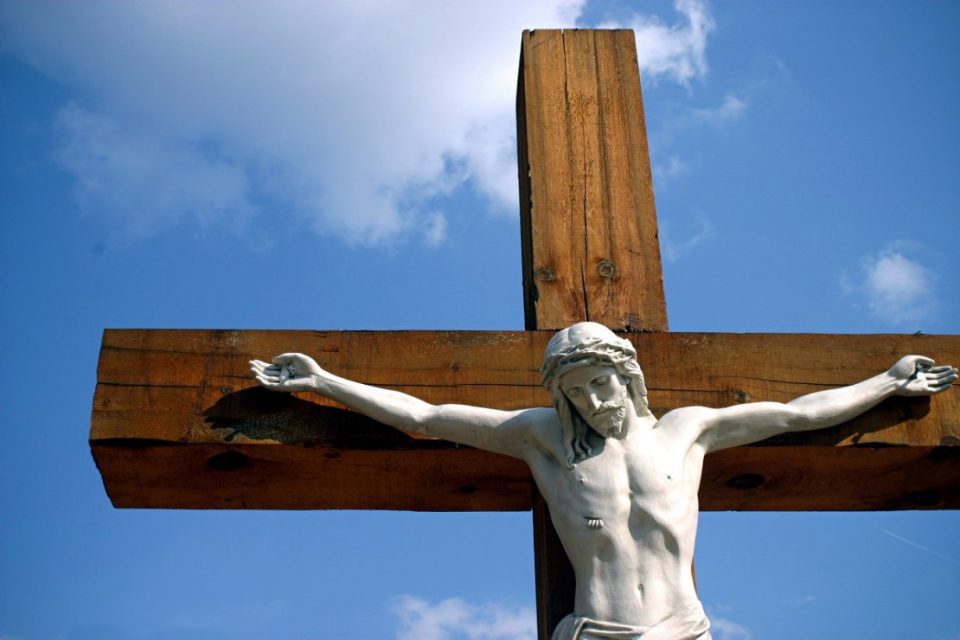Bible study: who ordered Jesus to be crucified?

Christ's death involved six conspirators, each doing their part to carry the process forward. Their motives ranged from greed to hatred to duty. They were Judas Iscariot, Caiaphas, the Sanhedrin, Pontius Pilate, Herod Antipas and an unnamed Roman centurion.
Hundreds of years earlier, Old Testament prophets had claimed that the Messiah would be led like a sacrificial lamb to the slaughterhouse. It was the only way the world could be saved from sin. Learn about the role played by each of the men who killed Jesus in history's most important ordeal and how they conspired to put him to death.
Judas Iscariot - Traitor of Jesus Christ
Judas Iscariot
Judas Iscariot was one of the 12 disciples chosen by Jesus Christ. As the group's treasurer, he was responsible for the common sack of money. While he had no part in ordering Jesus to be crucified, Scripture tells us that Judas betrayed his Master for 30 pieces of silver, the standard price paid for a slave. But did he do it out of greed or to force the Messiah to overthrow the Romans, as some scholars suggest? Judah has gone from being one of Jesus' closest friends to a man whose first name has become a traitor. Learn more about Judah's role in Jesus' death.
The High Priest of the Jerusalem Temple
Joseph Caiafa, high priest of the temple in Jerusalem from 18 to 37 AD, was one of the most powerful men in ancient Israel, yet he felt threatened by the peace-loving rabbi Jesus of Nazareth. He played a key role in the process and execution of Jesus Christ. Caiaphas feared that Jesus could start a rebellion, causing a repression by the Romans, which Caiaphas served. Then Caiaphas decided that Jesus was to die. He accused the Lord of blasphemy, a crime punishable by death according to Jewish law. Learn more about Caiaphas' role in the death of Jesus.
The Sanhedrin - Jewish High Council
The Sanhedrin, the supreme court of Israel, imposed the Mosaic law. Its president was the high priest, Joseph Caiafa, who brought charges of blasphemy against Jesus. Although Jesus was innocent, the Sanhedrin (with the exception of Nicodemus and Joseph of Arimathea) voted to condemn him. The penalty was death, but this court did not have effective authority to order execution. For this, they needed the help of the Roman governor, Pontius Pilate. Find out more about the role of the Sanhedrin in the death of Jesus.
Pontius Pilate - Roman Governor of Judea
As Roman governor, Pontius Pilate held the power of life and death in ancient Israel. Only he had the authority to execute a criminal. But when Jesus was sent to him for trial, Pilate found no reason to put him to death. Instead, he brutally whipped Jesus, then sent him back to Herod, who sent him back. However, the Sanhedrin and the Pharisees were not satisfied. They asked for Jesus to be crucified, a tortuous death reserved only for the most violent criminals. Also the politician, Pilate, symbolically washed his hands on the matter and handed Jesus to one of his centurions to execute the death sentence. Find out more about the role of Pontius Pilate in the death of Jesus.
Herod Antipas - Tetrarch of Galilee
Herodias in triumph
Herod Antipas was a tetrarch, or ruler of Galilee and Perea, named by the Romans. Pilate sent Jesus to him because Jesus was a Galileo, under the jurisdiction of Herod. Herod had previously killed the great prophet John the Baptist, a friend and relative of Jesus. Instead of seeking the truth, Herod ordered Jesus to perform a miracle for him. When Jesus was silent, Herod, who was afraid of the chief priests and the Sanhedrin, sent him back to Pilate for execution. Learn more about Herod's role in Jesus' death.
Centurion - Officer of the army of ancient Rome
The Roman centurions were hardened army officers, trained to kill with the sword and spear. A centurion, whose name is not recorded in the Bible, received an order that changes the world: to crucify Jesus of Nazareth. Acting under the orders of Governor Pilate, the centurion and the men under his command executed the crucifixion of Jesus, in a cold and efficient way. But when the act ended, this man made an extraordinary declaration while looking at Jesus hanging on the cross: "Surely this man was the Son of God!" (Mark 15:39 NIV). Find out more about the Centurion's role in the death of Jesus.